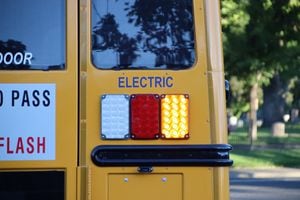Funding for Clean Transportation: A Step Towards Sustainable Solutions
On December 11, the U.S. Environmental Protection Agency (EPA) unveiled a significant investment of $8.4 million aimed at advancing environmentally friendly transportation within Washington State. This funding will support collaborative efforts involving the Washington Department of Ecology, Confederated Tribes of the Colville Reservation, and Woodland Public Schools, focusing on acquiring 28 zero-emission vehicles.
Impact on Air Quality and Community Health
Senator Patty Murray (D-WA) emphasized the importance of transitioning from traditional heavy-duty diesel vehicles to cleaner alternatives such as electric buses and trucks. She stated, “Upgrading outdated diesel transportation with greener options is an effective strategy to enhance air quality for our children and neighborhoods while reducing long-term operational costs.” Senator Murray expressed her satisfaction regarding these funds—secured through tireless advocacy—returning to Washington state to bolster job creation and emissions reduction initiatives.
Allocation Breakdown
The grant distribution is as follows:
- The Washington Department of Ecology will receive $3,887,706 dedicated to procuring electric buses that will replace 13 existing diesel school buses.
- The Confederated Tribes of the Colville Reservation are set to receive $260,000, which will fund the acquisition of an electric garbage truck in place of a diesel model.
- Woodland Public Schools has been allocated $4,249,000 earmarked for replacing 14 aging diesel buses.
Additionally, this financial assistance can be utilized not only for purchasing vehicles but also for establishing supportive infrastructure conducive to zero-emission technologies. This includes worker training programs as well as funding project execution costs.
Commitment to Clean Technology Leadership
EPA Administrator Michael S. Regan highlighted President Biden’s commitment during this announcement: “Thanks to President Biden’s leadership, we are propelling America forward in clean technology advancements that confront climate change challenges head-on.” He further added that these efforts would significantly reduce air pollution while strengthening the national framework supporting cleaner transport solutions—creating numerous well-paying jobs in tandem.
Conclusion
This substantial allocation marks a pivotal move toward fostering sustainable transportation practices across communities in Washington State. By embracing zero-emission vehicles today—like those being integrated into Walla Walla Public Schools—the region takes critical strides towards ensuring cleaner air tomorrow while stimulating economic growth through job creation in green sectors.
